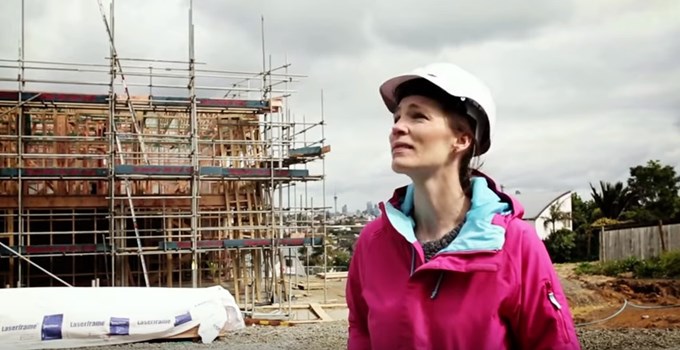Kate Healy, Chief Operating Officer at Ngati Whatua Orakei Whai Rawa Limited, shares her thoughts on Auckland's housing challenges.
It is undeniable that Auckland needs more good quality homes fast to provide Aucklanders with better lifestyle options. The Auckland Unitary Plan, once finalised, will assist in increasing the supply of well-design homes to the market. However, ensuring that the houses will be affordable is an ongoing challenge.
Home ownership remains an common aspiration
Most Aucklanders want to be home owners. While there are strong arguments made in favour of focussing on growing personal wealth through non-residential investment, it seems unlikely that the commonly held aspiration of homeownership will change any time soon. And with good reason. For most of us, a home is more than an investment; it is security for our whanau, and a lasting connection to a community. So, it’s time to explore different tenure models that could make this more achievable.
Shared equity
The shared equity models being promoted by organisations such as New Zealand Housing Foundation also have merit, and enable those who would not otherwise be able to to step on to the first rung of the housing ladder. Very simply, homeowners initially buy a portion of their homes only, although get to live in it as if they were 100 per cent owners. Assuming that all goes well, the homeowner buys the balance of the home over the next decade or so. Capital growth is shared by the home owner and the other equity participant.
Cost sharing / deferring
Ngāti Whātua Ōrākei is trialling a different assisted home ownership model on its papakainga (tribal land holdings) in Orakei. Here homeowners (iwi members) are granted a long term ground lease of the land on which their homes are built. A peppercorn rent is charged. The costs of building the homes have been shared amongst whanau, and the project has been overseen by the commercial arm of the hapū, enabling a medium density, quality development to be undertaken. Funding is provided by the hapū initially, but homeowners will pay for the costs of construction over time.
Similar opportunities may exist (on a smaller scale) for other families or groups to pool resources, whether those resources are capital, land or skills.
Long term pre-paid ground leases
Leasehold land currently gets a bad rap in New Zealand. However, it could be structured differently to reduce land costs up front.
Most existing long term residential ground leases in Auckland require lessees to pay rent annually based on a percentage of the freehold land values. Rents are typically reviewed to market at regular intervals (say, 5, 7 or 21 years) and are “ratcheted” (they do not decrease even if market values fall). This type of lease creates uncertainty as rents can increase dramatically from one period to the next.
Ground leases could, however, be structured in more innovative ways to assist with the affordability of land. For example, ground rents could be pre-set for the first 50 years (with built in, known increases) with an option for a lessee to buy out the freehold in accordance with a pre-agreed formula. Or philanthropic or socially conscious landholders (or local/ central government agencies) may be willing to accept less than a commercial return on land that is being used for residential purposes.
Long term leasehold ownership can provide security of tenure for homeowners while sharing the land costs between lessor and lessee. The value of the home, if it were to be sold, would relate to what it would cost to replace and a portion of the land value dependent on the unexpired lease term at the time.
Given the strong macro-economic indicators, it seems unlikely that demand for quality houses in Auckland will fall any time soon. Increasing supply will help meet demand but may not tackle the affordability issues, although innovative approaches to land tenure may.
These are the views of Kate Healy, the Chief Operating Officer at Ngati Whatua Orakei Whai Rawa Limited, the commercial subsidiary of Ngati Whatua Orakei Trust. Whai Rawa is currently completing a 30-dwelling affordable housing project in Kupe Street, Orakei.


